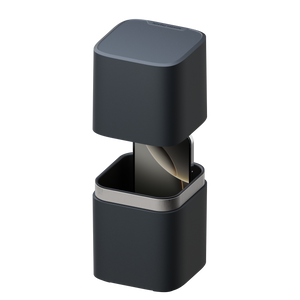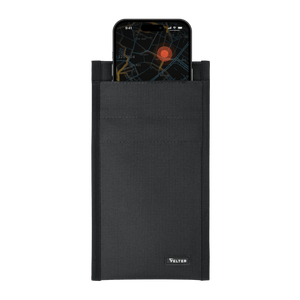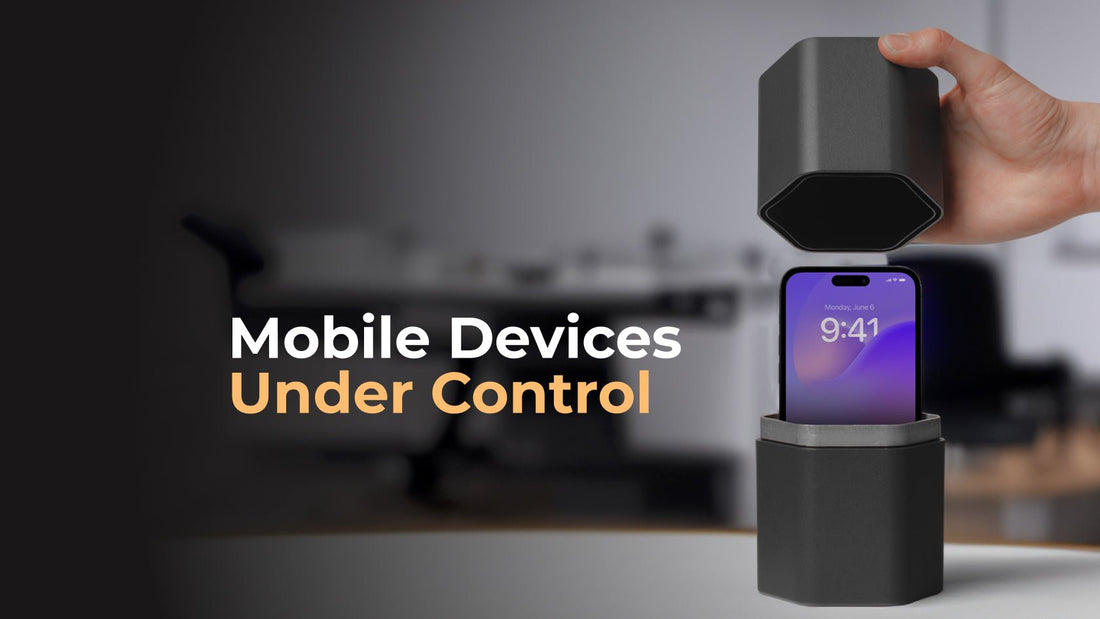7The Faraday Capsule: Safeguarding Corporate Secrets in the Digital Age
In the glass-paneled offices of top executives, the chambers of high-ranking bureaucrats, and the meeting rooms of vast corporations, there lies a device echoing 19th-century technology, yet critical to 21st-century digital privacy: the Faraday Cage. A staple among lawyers and within private banking circles, this capsule shields radio signals and nullifies mobile connectivity. Here, we delve into its importance amidst today's digital landscape.

The Mobile Threat: Always On, Always Vulnerable
Within a short span, the mobile phone morphed from a mere communication device to a central hub for storing, processing, and transmitting personal and professional data. It chronicles our every move, houses our photos, contacts, holds knowledge of our bank details, and even listens to our words. This makes it an irresistible target for cybercriminals.
Once they breach a phone, malicious actors gain a digital fingerprint of a person's entire life. Seasoned cybercriminals aim not for the average user, but for those whose devices house invaluable data: top executives, corporate leadership, officials, and diplomats. The cost of casual mobile security? Business espionage, stalking, eavesdropping, data leaks, botched deals, and large-scale extortion.
The Mechanics of Mobile Hacking
Contrary to phone manufacturers' reassurances, breaching a device isn't as formidable a task as one might assume.
"Privacy. That's iPhone." claims the advertising slogan. In reality, any smartphone can be hacked, including devices from Apple.Security experts from Check Point Software Technologies identified a growing threat of MRAT (Mobile Remote Access Trojan). This malware offers criminals complete control over a smartphone, allowing remote activation of the camera, microphone, location tracking, and access to memory. With admin rights, the intruders often have more access than the device owners themselves.
This malicious software typically sneaks in through targeted attacks, like phishing links in emails, malicious auto-run codes in iMessage, or seemingly innocent apps. And with apps regularly seeking varied permissions, a spyware can disguise itself, perhaps as a fitness tracker or a calendar.
![]() 53% of apps in the 'Finance' category require access to geolocation. That's nearly as many as in the 'Navigation' category (62%).
53% of apps in the 'Finance' category require access to geolocation. That's nearly as many as in the 'Navigation' category (62%).
Cutting-edge spyware variants, like Pegasus or Triangulation, even operate on turned-off phones. In the digital age, smartphones have become the Achilles' heel of corporate digital security. No software guarantees 100% privacy.
![]() Researchers discovered a vulnerability in iPhones that allows for the hacking of powered-off smartphones. The malicious code is introduced through a low-power consumption chip that operates in airplane mode and even after the phone is turned off. This is a hardware vulnerability that cannot be fixed with software updates.
Researchers discovered a vulnerability in iPhones that allows for the hacking of powered-off smartphones. The malicious code is introduced through a low-power consumption chip that operates in airplane mode and even after the phone is turned off. This is a hardware vulnerability that cannot be fixed with software updates.
Ways to Fortify Your Mobile Privacy
- Limit application access to your camera, microphone, and phone memory.
- Disable geolocation and precise location tracking in your phone settings.
- Turn off voice assistants.
- Connect to corporate Wi-Fi networks through trusted VPN services.
- For absolute privacy assurance, go beyond software settings. Physically obstruct data exchange channels using specialized shielding devices.
The Faraday Cage: The Ultimate Physical Defense
Long before smartphones, the Faraday cage was devised to protect electronic equipment from electromagnetic fields. Today, it has found renewed purpose. It physically blocks all inbound and outbound radio signals, ensuring total disconnection from networks. Our line of shielding devices includes a capsule with an integrated Faraday cage, creating an "inaccessible zone" right on your desktop.

In a world where phones rarely shut down completely and batteries are fixed, this physical isolation remains the sole surefire way to control wireless data exchange. Devices inside are hack-proof, eavesdrop-resistant, and even undetectable when scanned for nearby Bluetooth devices. It's a straightforward, fail-safe method to counteract eavesdropping during business discussions, crucial meetings, and video conferences.

For an added layer of security against conversation recording, the Faraday capsule can be paired with a Jammer – an ultrasonic microphone disruptor. This creates ultrasonic interference, rendering speech recording on any device inside the capsule impossible.
Conclusion
Underestimating the confidentiality and security of corporate data is not an option. Business reputation, preservation of corporate or state secrets, and even an organization's fate can hinge on how well its precious information is safeguarded. In a world where every device, from a CEO's phone to a smart speaker in a meeting room, can be compromised, physical data protection tools transition from being "just in case" measures to essential components of a multi-layered corporate data defense system.
07.09.2023

